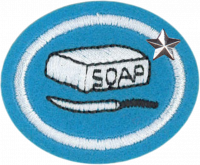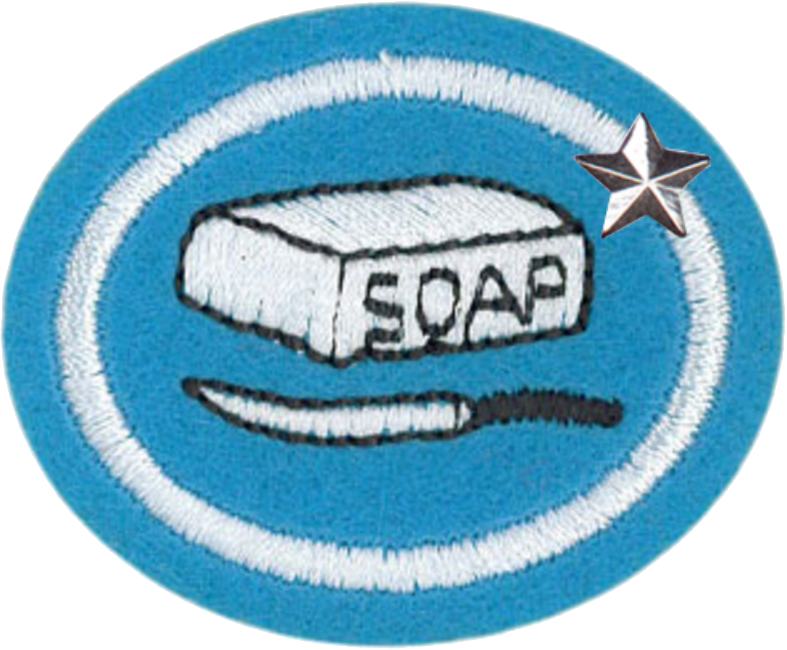Difference between revisions of "AY Honors/Soap Craft - Advanced/Requirements 2"
m (Jomegat moved page AY Honor Soap Craft - Advanced Requirements used by General Conference to AY Honor Soap Craft - Advanced Requirements used by North American Division without leaving a redirect: Part of translatable page "AY Honors/Soap Craft - Advanced/Requirements") |
m (- Category of Honor Requirements) |
||
| Line 77: | Line 77: | ||
<section end=challenge /> | <section end=challenge /> | ||
<section end=Body /> | <section end=Body /> | ||
| − | |||
| − | |||
| − | |||
| − | |||
| − | |||
| − | |||
Latest revision as of 12:50, 22 July 2022
Skill Level
2
Year
1964
Version
06.02.2026
Approval authority
North American Division
1. Have the Soap Craft honor.
2. What safety equipment should be used when making soap with and without lye?
3. Name three types of lye. Explain what lye is and why it is needed to make soap.
4. Describe what happens when a strong base is added to an oil or fat. What is it called?
5. What makes “hard” soap versus “soft” soap?
6. What types of fats can be used in making soap?
7. What is used in making soap transparent?
8. What are the advantages and disadvantages of soap and detergent?
9. What makes soap float?
10. Learn the following verses: Jeremiah 2:22, Malachi 3:2.
11. Identify some things that can be added to soap.
12. What can be used as soap molds? Discuss what should not be used and why.
13. Describe six methods of making soap. Note which ones do not require the use of lye and explain why it is not needed.
14. Make two soap projects. One using the melt and pour method and the other using the rebatching method.
15. Do one of the following:
- a. Visit a soap-making establishment, commercial or non-commercial.
- b. Watch a video about how cold process soap is made.
- c. Write a report, tell a story, or use some other creative means to explain how soap is made.


